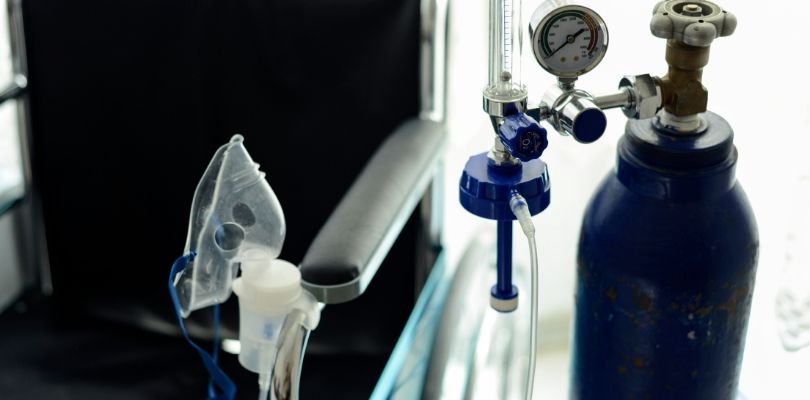Everything You Need to Know About Heartburn
With a name like heartburn, the affliction sounds like it would have a serious impact on your cardiovascular system. Health issues that impact your heart cause your self-care radar to go up and puts you on alert to make sure that the issue doesn’t escalate. Calling it heartburn, however, is a misnomer, since it doesn’t affect your heart.
What Is Heartburn?
Your stomach contains gastric acid that helps break down food during digestion. When you swallow, a muscle around the bottom of your esophagus (called the lower esophageal sphincter) relaxes to let food and beverages enter your stomach.
After food passes through the sphincter, the muscle tightens again. If this sphincter weakens or relaxes, gastric acid can flow into your esophagus and causes a burning sensation in your chest (behind the breastbone) and can move up into your neck or throat.
This condition is also referred to as acid reflux or acid indigestion, and lasts from a few minutes to several hours.
What Causes Heartburn?
Some types of food, being overweight, use of certain medications, or even pregnancy can increase your risk of heartburn.
In pregnancy, the lower esophageal sphincter is weakened, which mends itself after the baby is born. Pregnancy also forces the organs to accommodate the growing baby, and these changes create increased abdominal pressure that promotes indigestion.
A lot of the time indigestion is merely the result of consumption—after you eat or drink certain things.
Examples of foods and beverages that can trigger acid reflux:
- Citrus fruits
- Tomato products
- Spicy food
- Salt
- Onions
- Garlic
- High-fat food
- Fried food
- Carbonated drinks
- Milk
- Alcohol
- Caffeine
- Oversize meals
- Chocolate
- Mint
Symptoms of Heartburn
In addition to the feeling of burning pain in the chest and up the neck, other symptoms can occur with heartburn.
You may feel like food is stuck in the middle of your throat or chest. Also, there may be a hoarseness quality or a sore throat that results which can be accompanied by a chronic cough.
You may have an acidic or sour taste in your mouth. Given the sequence of events that lead to indigestion, regurgitation of food and stomach pain are likely symptoms as well.
If you experience difficulty swallowing, dizziness, persistent nausea/vomiting, or weight loss from poor appetite, it may be indicative of an issue more serious than acid reflux.
If symptoms continue, even with the use of medication, consult a medical professional. Chest pain or pressure may be a symptom of a heart attack and if you experience this symptom, see your doctor immediately.
When Does Heartburn Happen?
Frequent heartburn or indigestion that affects your day-to-day may be cause for concern and may require care from your doctor. Acid reflux can happen anytime, but the evening is most common.
Symptoms can also wake you up from sleep, especially if you are a fan of late-night snacking. Heartburn pain usually gets worse after eating (and depends on the kind of food you’re consuming).
The nature of gravity enhances heartburn symptoms when you’re lying down or bent over, so try to sit up when you are experiencing heartburn.
Frequent heartburn (more than couple times a week) that interrupts your regular routine is considered gastroesophageal reflux disease (GERD). It may require prescription medications and surgery in some cases. GERD can cause damage to your esophagus, so make sure to seek treatment.
What are minerals? Minerals play an important role in the body from bone formation, heart function, digestion, metabolism to growth.
Treatment for Heartburn
What can be done to stop your indigestion? A few things, depending on your circumstance. There are three levels of heartburn treatment:
- Improve your health
- Use Medications
- Surgery
How to Treat Heartburn at Home
Discomfort caused by acid reflux can be managed with lifestyle changes.
Keep a food journal to track what you are eating and when you are eating it. This will help you narrow down the causes or times that make your indigestion occur and give you the ability to avoid known heartburn triggers.
Extra weight puts added pressure on the stomach, so embark on a well-being plan that helps you maintain a healthy weight. Decreasing the amount of food you eat will also help minimize heartburn episodes.
Acid reflux may also be a sign for you to quit smoking, as this habit interferes with how the lower esophageal sphincter functions. If you experience acid reflux at night, elevate the head of your bed—the elevation helps decrease acid reflux.
Medical Treatments
If at-home treatments are insufficient, you may need to look into other options. Several over-the-counter medications are available at the pharmacy for acid reflux.
Antacids provide quick heartburn relief by decreasing the acid that is present, however, antacids only treat the symptoms, not the cause of the acid reflux.
Medications are available that reduce the production of acid as well. Relief lasts longer with these medications than with antacids, but they take longer to start working.
Other medications that block acid production can also be obtained; these medications allow the damage to the esophagus to heal. If medications and other solutions don’t work, laparoscopic procedures are available (surgery).
The Bottom Line...
Now that you know where and how indigestion occurs, you may still be wondering why it’s called heartburn. There is a theory that the name generates from the meaning of “heart” as a synonym for the core, or center, of something rather than the literal human heart.
Since the burning feeling generates in the center of the chest, the name is still applicable, albeit confusing. Call it heartburn, call it acid reflux, whichever name you use, now you’ll be able to identify heartburn in the future.







